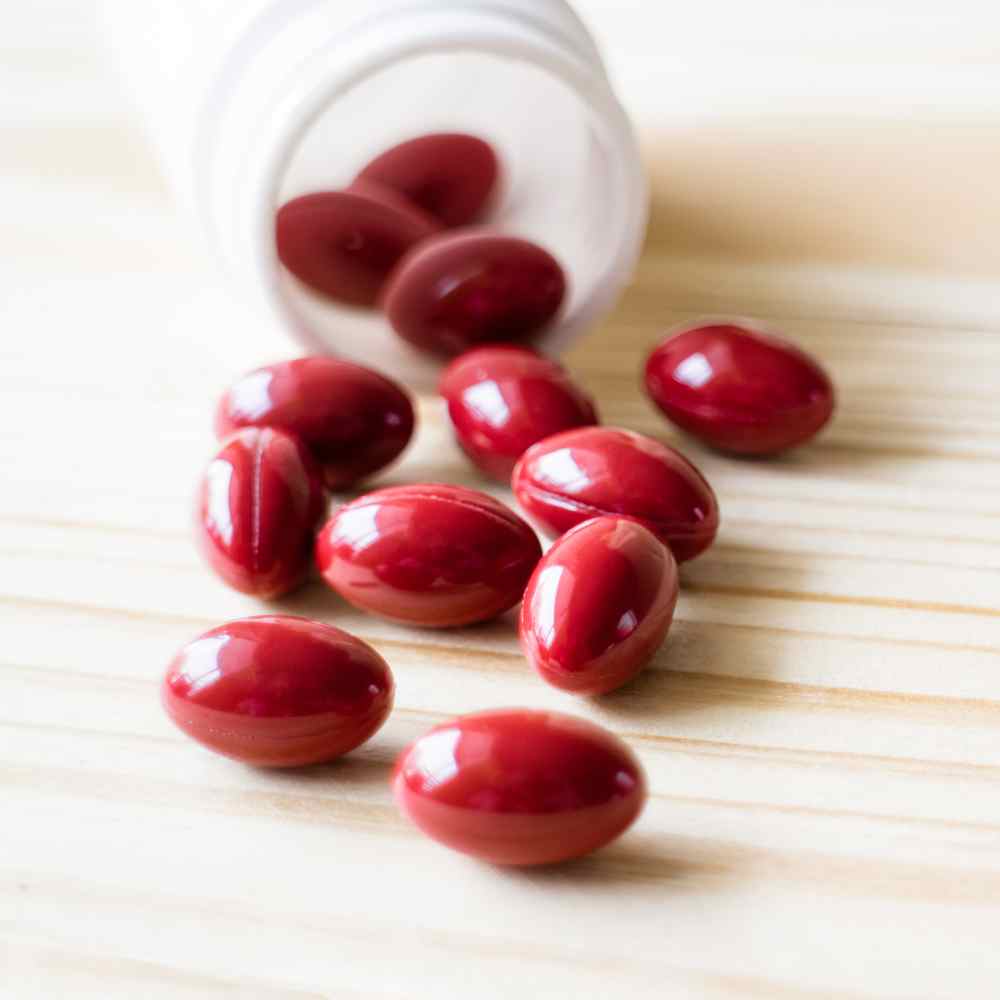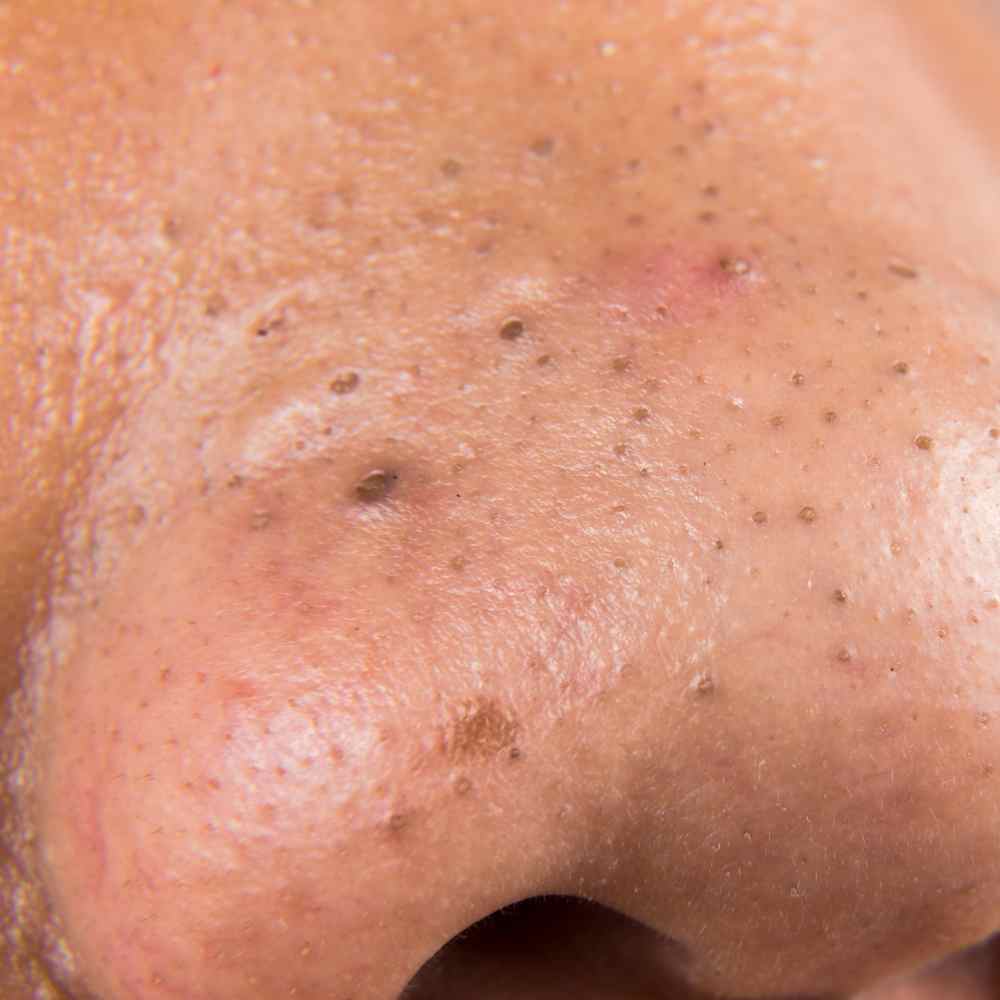
The Blackhead Pill: Does Accutane Get Rid of Blackheads?
Are blackheads taking over your life? Do you feel like no matter how often you cleanse, nothing seems to get rid of those pesky little bumps? Well, we've all been there!
But have you considered trying Accutane for your blackhead woes? It might be worth considering if other attempts at getting rid of them haven't worked out so well.
In this blog post, we'll be diving into the specifics of Accutane and whether or not it's a good solution to eliminate pesky blackheads.
So grab that cup of coffee (or tea!), settle in with your cozy blanket, and let's dive deep into the world of Accutane and see if it just might help get rid of those dreaded blackheads once and for all!
What is Accutane?
Accutane, also known by its generic name isotretinoin, is often hailed as a game-changer in the world of hormonal acne treatment. It's basically the Holy Grail of acne treatments - if you’ve struggled with acne, you’ve probably at least heard of it.
It's a powerful medication used to treat extreme cases of nodular or severe cystic acne that don’t respond to other treatments. To put it bluntly, it kicks some serious butt when it comes to clearing up your skin!

How Does Accutane Work?
Accutane works by reducing oil production in the sebaceous glands (the glands responsible for producing oil and giving our skin its smooth appearance).
When these glands produce less oil, your pores can become clear and this can reduce breakouts significantly. It also helps to prevent those pesky pimples from reoccurring in the future!
In addition to reducing oil production, Accutane has been shown to decrease inflammation in the skin too; this means fewer redness and swelling around your blemishes.
Plus, as an added bonus, Accutane has also been linked with improved skin texture and tone.
So not only are you getting relief from those embarrassing bumps on your face but you might even get reduced acne scarring and an added glow while using this amazing drug!
Of course however powerful a treatment may be, there are always risks involved so make sure you talk with your doctor before starting any new form of medication.
But if they decide that Accutane is right for your severe acne, prepare yourself for some amazing results that could give clear up even the most stubborn breakouts once and for all!

Understanding Blackheads
Blackheads are one of the most common types of acne breakouts. They’re small bumps that appear on your skin due to clogged hair follicles. Blackheads can appear anywhere on your body including your nose, chin, or even in your ears!
If you look closely, they have a black or yellowish hue due to the buildup of oil, dirt, and dead skin cells inside the pore.
Don't worry though! Everyone gets blackheads from time to time! In fact, blackheads aren’t caused by bad hygiene or poor cleaning techniques; genetics and hormones play a major role in how much grease our faces can produce too.
So don't stress if you're seeing them pop up every now and again; it's totally normal!
Now let's get into what causes blackheads. It all starts with sebum (or oil) produced by the sebaceous glands found underneath your skin.
Normally this oil travels through your pores and onto the surface of your skin without any issues - but sometimes things can get backed up, leading to clogged pores which is where those pesky blackheads come in.
But there is hope! With some simple cleansing techniques like using non-drying cleansers followed by exfoliating once or twice a week should help clear out those pores nice and easily so you can go back to looking flawless as ever!
Spot treatments containing salicylic acid also do wonders for removing excess oils from deep within the pores while being gentle enough not to cause irritation or dryness on top of it all - making these topical treatments ideal for treating any type of blemishes including those nasty little buggers known as blackheads.
But, what about Accutane? Is it better than previous acne treatments you may have tried? And is it an ideal treatment for blackheads? Keep reading for the facts!
Accutane and Blackheads: The Lowdown
So, can Accutane also take down blackheads along with its acne-fighting mission? Let's delve into the details of how Accutane interacts with blackheads.
1. Oil Reduction
Accutane is like the oil-control superhero of skincare. By reducing the activity of oil glands, it can lead to less oil production and potentially fewer clogged pores. This means that Accutane might help prevent the formation of new blackheads.
2. Pore Cleansing
While Accutane primarily targets inflamed acne lesions, its impact on blackheads can be a bit more subtle. It might help shrink the appearance of pores, making existing blackheads less noticeable.
3. Patience is Key
Accutane is not a quick fix for anything, blackheads included. The treatment process usually spans several months, during which you might see gradual improvements in your skin's texture and appearance.
The Accutane Journey
Considering Accutane treatment to tackle blackheads? Here's a glimpse of what that journey might look like:
1. Doctor's Orders
Accutane is a prescription medication, and you'll need to consult a dermatologist to determine if it's the right choice for you. Your dermatologist will consider your skin type, medical history, and severity of acne before prescribing Accutane.
2. Monitoring and Care
Once you start Accutane to treat acne, your dermatologist will closely monitor your progress and adjust the dosage as needed. Regular check-ins are essential to ensure your safety and the effectiveness of the treatment.
3. Skincare Adjustments
While on Accutane, your skin will likely become more sensitive and prone to dryness. You'll need to adjust your skincare routine to include gentle, hydrating products and loads of sunscreen.
4. Be Patient
The results of Accutane take time. Blackheads might not vanish overnight, but over the course of your treatment, you might notice an improvement in your skin's overall texture and clarity.
What are the Side Effects of Accutane?
The use of Accutane as a treatment for acne can lead to some serious side effects, so it’s important to make sure that you understand the potential risks before starting any sort of medication.
Common side effects associated with Accutane include dry skin and lips, nosebleeds, nausea, headache, drowsiness, dizziness and changes in vision.
It can also cause depression or mood swings — many people may experience an increase in irritability when taking this medication.
In rare cases it has been linked to kidney problems. Additionally, using this drug can cause severe birth defects if taken while pregnant.
Even one dose is enough to do serious damage so it’s essential that women are very aware of the consequences before taking any form of Accutane while pregnant or if they could be pregnant.
Finally, remember always consult your doctor for more information about any prescription medications that you are considering using!
Accutane & Blackheads: The Verdict
So, does Accutane therapy get rid of blackheads? While Accutane's primary focus is on inflammatory acne and preventing acne scars, it can certainly play a role in improving the appearance of blackheads.
By reducing oil production and refining pores, Accutane might help prevent and minimize blackheads over time.
However, it's essential to approach Accutane with realistic expectations and under the guidance of a medical professional.
Remember, the journey to clearer skin is unique for everyone. Whether you're dealing with blackheads, acne, or other skin concerns, a dermatologist can guide you toward the best solutions for your individual needs.
So, embrace your skin's unique journey and consider the expert advice that will lead you to your best skin yet!

















